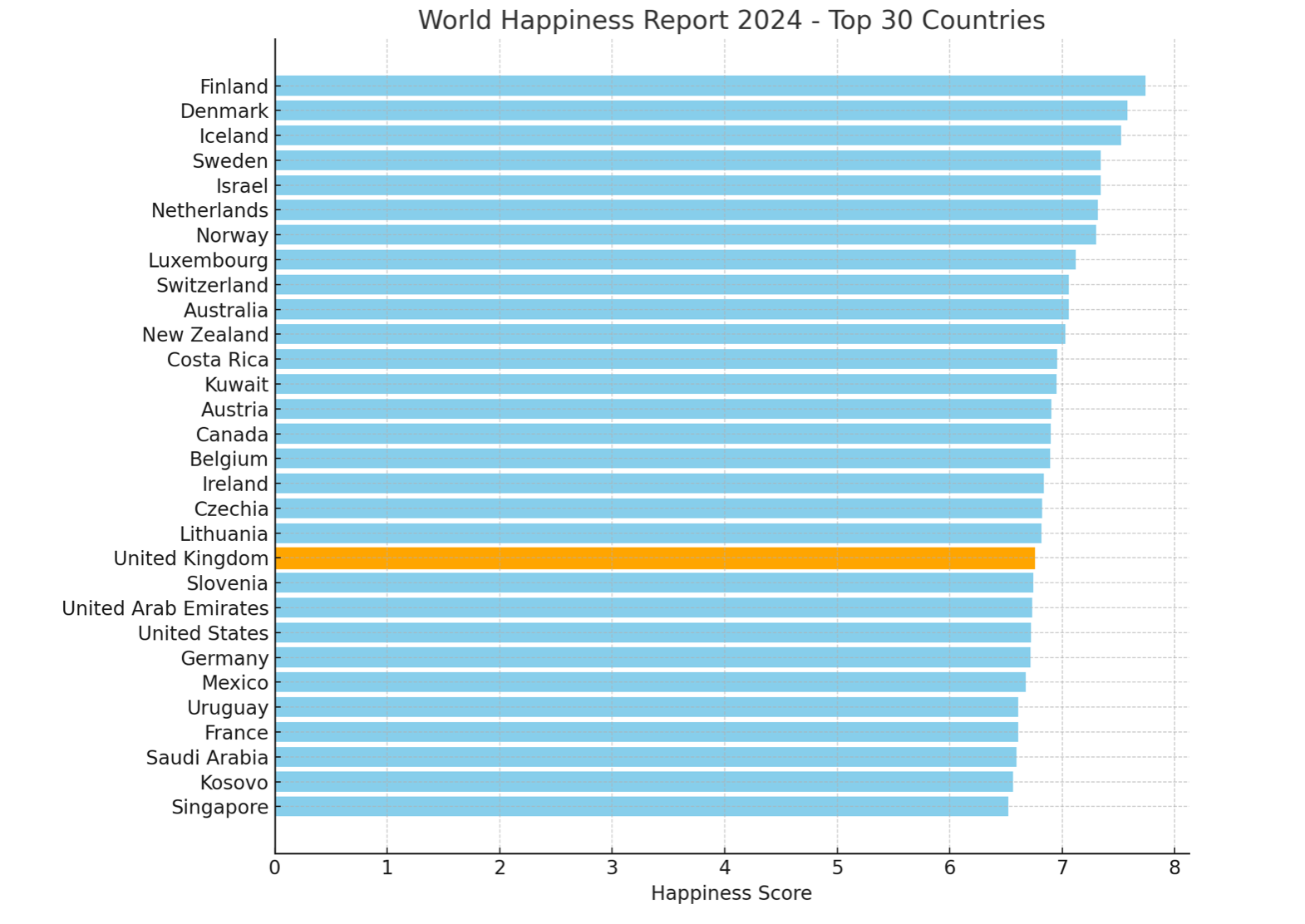What's the secret to happiness?
New report has UK ranked 20th in list of happiness.
The latest wave of the World Happiness Report, a global survey measuring individual well-being, casts light on the happiest nations around the world.
Looking at the top 30 rankings, a familiar pattern emerges with Nordic countries—Finland, Denmark, Iceland, and Sweden—dominating the upper reaches, while the United Kingdom finds itself down in 20th position.
Why does the UK perform worse than Nordic countries? We discuss the factors that might be at play here.
Country Rankings By Life Evaluation Top 30

The UK at 20th: A closer look
You'd think that the United Kingdom, with its vibrant culture, rich history, and economic prowess, would rank higher than 20th place. However, when compared to the Nordic frontrunners, several factors explain why it doesn't:
- Economic pressures: Despite its wealth, the UK is not immune to the challenges of high living costs and income inequality, which can significantly dampen individual happiness.
- Community and social support: The backbone of well-being, the strength of community ties, and the availability of social support in the UK, might not be as robust as in the highest-ranking countries, affecting its happiness ranking.
- Mental health: With mental health issues becoming an increasing concern, the impact on the nation's overall happiness cannot be underestimated. Addressing these concerns is essential but remains a complex challenge.
- Political and social uncertainty: Recent years have seen the UK navigating through turbulent waters like Brexit, contributing to a sense of uncertainty and stress among its populace.
The Nordic model of happiness
At the other end of the scale, the Nordic countries' top-tier rankings can be attributed to a mix of societal, economic and environmental factors that collectively build a strong foundation for happiness:
- Robust social systems: A better welfare system combined with higher living standards and lower income disparity, contribute significantly to the happiness of the population.
- Trust in government: High levels of trust in public institutions and a transparent, efficient governance model foster a sense of security and optimism.
- Community cohesion: Nordic society seems happy to pay higher taxes to ensure public services are of a very high standard and are accessible to everyone. Society is thought to be more cohesive as a result.
- Work-life balance: Prioritising work-life balance through favourable policies supports a healthier, happier, and more productive society.
- Environmental sustainability:Nordic countries have a reputation for environmental sustainability, renewal energy and achieving climate neutrality.
Conclusion
The contrast of the UK's ranking with that of the Nordic countries in the World Happiness Report 2024, provides insights into the varied nature of happiness. It underscores the significance of economic stability, social support, mental health and political stability in sustaining a happy society. Moreover, it highlights the Nordic model that integrates social welfare, trust in governance, community cohesion and environmental well-being into the fabric of national happiness.
It's evident that happiness is a complex, multifaceted thing influenced by a myriad of factors. Understanding these components not only provides a roadmap for nations to enhance their citizens' well-being but also encourages individuals to seek out and nurture the elements of happiness in their own lives.










